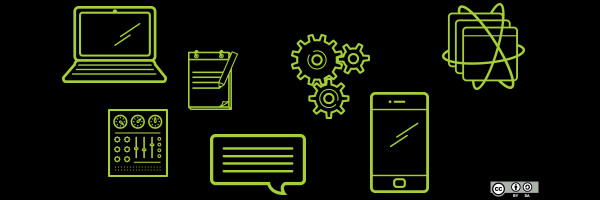Open Source
Jump to navigation
Jump to search
| Data | |||||||||||||||||||||||||||||||||||||||||||||||||||||||||||||||||||||||||||||||||||||||||||
|---|---|---|---|---|---|---|---|---|---|---|---|---|---|---|---|---|---|---|---|---|---|---|---|---|---|---|---|---|---|---|---|---|---|---|---|---|---|---|---|---|---|---|---|---|---|---|---|---|---|---|---|---|---|---|---|---|---|---|---|---|---|---|---|---|---|---|---|---|---|---|---|---|---|---|---|---|---|---|---|---|---|---|---|---|---|---|---|---|---|---|---|

| |||||||||||||||||||||||||||||||||||||||||||||||||||||||||||||||||||||||||||||||||||||||||||
| Sectors | Data | ||||||||||||||||||||||||||||||||||||||||||||||||||||||||||||||||||||||||||||||||||||||||||
| Contact | Wilfred Pinfold | ||||||||||||||||||||||||||||||||||||||||||||||||||||||||||||||||||||||||||||||||||||||||||
| Topics | |||||||||||||||||||||||||||||||||||||||||||||||||||||||||||||||||||||||||||||||||||||||||||
Activities
Press
| |||||||||||||||||||||||||||||||||||||||||||||||||||||||||||||||||||||||||||||||||||||||||||
- Authors
Two barriers currently exist to effective and powerful smart city solutions. First, many current smart city ICT deployments are based on custom systems that are not interoperable, portable across cities, extensible, or cost-effective. Second, a number of architectural design efforts are currently underway (e.g. ISO/IEC JTC1, IEC, IEEE, ITU and consortia) but have not yet converged, creating uncertainty among stakeholders. To reduce these barriers, NIST and its partners convened an international public working group to compare and distill from these architectural efforts and city stakeholders a consensus framework of common architectural features to enable smart city solutions that meet the needs of modern communities.
Demonstration Projects

|
[[Citizen App]] | |
| Citizen App, the first of its kind, empower individuals to claim and legally own their data from across multiple sources, then use it securely and seamlessly in everyday life. | ||

|
[[Go-Green]] | |
| GoGreen aims to help people understand the impact of small sustainable gestures on their communities through technology. It presents itself as a community rewards system where participating points providers can define actions that support their communities objectives and reward people for taking them. For the users they see a marketplace of options along with rewards based on secure blockchain based smart contracts for supportive behavior. | ||

|
[[Neighborhood Data for Social Change]] | |
| The Neighborhood Data for Social Change (NDSC) platform is a free, publicly available online resource for civic actors to learn about their communities. | ||

|
[[Open Participatory Budgeting]] | |
| Participatory budgeting (PB) is process in which citizens decide how to allocate part of a municipal or public budget through a process of democratic deliberation and decision-making. Participatory budgeting allows citizens or residents of a locality to identify, discuss, and prioritize public spending projects, and gives them the power to make real decisions about how money is spent. | ||

|
[[Personal Access System for Services (PASS)]] | |
| Social services are programs or services designed to support individuals and communities in need. They provide assistance with basic needs such as food, housing, and clothing, as well as health and medical care, education and job training, child care, support for individuals with disabilities or mental health conditions, and aging and elder care. These services are intended to improve the quality of life for individuals and communities and help individuals achieve self-sufficiency. | ||

|
[[Small Donor Elections]] | |
| The Small Donor Elections program seeks to reduce the influence of money in politics and encourage election of people to City office who are reflective of and accountable to all Portlanders. | ||

|
[[The Solid Project]] | |
| The Solid project is a decentralized platform for the Web that he and a team of researchers at MIT are developing. The goal of the Solid project is to give people more control over their personal data and how it is used by enabling them to store their data on their own servers or "pods," rather than on centralized servers controlled by companies. | ||

|
[[Urban Platform]] | |
| An easy-to-use platform that allows you to manage your city, whether you are responsible for traffic and mobility, safety, infrastructure or high-level decision making. | ||
News

|
[[Barcelona’s participatory democracy open source platform]] | |
| Released in 2017 by the Barcelona City Council, Decidim ("we decide" in Catalan) is a free and open digital platform for democratic participation that is maintained and developed by a community of users. The project is co-funded by the European Regional Development Fund. On a technical level, Decidim is a framework (or development environment) designed using the Ruby on Rails development software. The source code is available on GitHub under an AGPL 3.0 License. | ||

|
[[Digital Infrastructure Forum]] | |
| Today, international technology standards organization Object Management Group® (OMG®) announced it would co-host a digital infrastructure forum with the Open Civic Foundation (OCF) and the Global City Teams Challenge (GCTC) in support of open civic data and IT standards through the further development of the Open Civic Architectural Framework (OCAF). | ||

|
[[Digital Twin Consortium’s open-source now available to the public on GitHub]] | |
| The Digital Twin Consortium’s open-source collaboration initiative is now available to the public on GitHub. By opening up this resource to the world, we are encouraging innovation, accelerating usage, and expanding collaboration in digital twins. | ||

|
[[FIWARE4Cities]] | |
| FIWARE4Cities book edition 3 presents insight of cities into how they are using FIWARE and the benefits they are able to generate when making their cities smart, but also sustainable and resilient. | ||

|
[[How Open-Source Software Makes Cities More Livable]] | |
| St. Francis is now rolling out a new calendaring and scheduling service on its website, designed to help neighborhood people register for services or reserve space for events. | ||

|
[[Impact of Open Source on the European economy]] | |
| The Commission has published the results of a study analysing the economic impact of Open Source Software and Hardware on the European economy. | ||

|
[[MIMs Plus Technical Specifications final version 4 released]] | |
| Open & Agile Smart Cities (OASC) Minimal Interoperability Mechanisms (MIMs) are the minimal but sufficient capabilities needed to achieve interoperability of data, systems, and services between buyers, suppliers and regulators across governance levels around the world. Because the mechanisms are based on an inclusive list of baselines and references, they take into account the different backgrounds of cities and communities and allow cities to achieve interoperability based on a minimal common ground. | ||

|
[[Open Strategic Autonomy]] | |
| An interconnected and open technology sector in Europe would provide the continent with cutting-edge, competitive solutions; well-paid jobs; and a turnover that contributes to Europe’s tax base and public welfare. As digitalisation and decarbonisation continue worldwide, an open technology sector would provide a strong geopolitical position, that allows Europe to set global technological standards, promote European values, as well as, maintain and grow Europe’s economy. | ||

|
[[Open-source collaboration drives digital twin innovation]] | |
| The Digital Twin Consortium’s open-source collaboration initiative is now available to the public on GitHub. An open-source collaboration community will accelerate the adoption of digital twin-enabling technologies and solutions. Consortium members and non-members can collaborate on open-source projects, code, and collateral and become part of the DTC ecosystem. | ||



